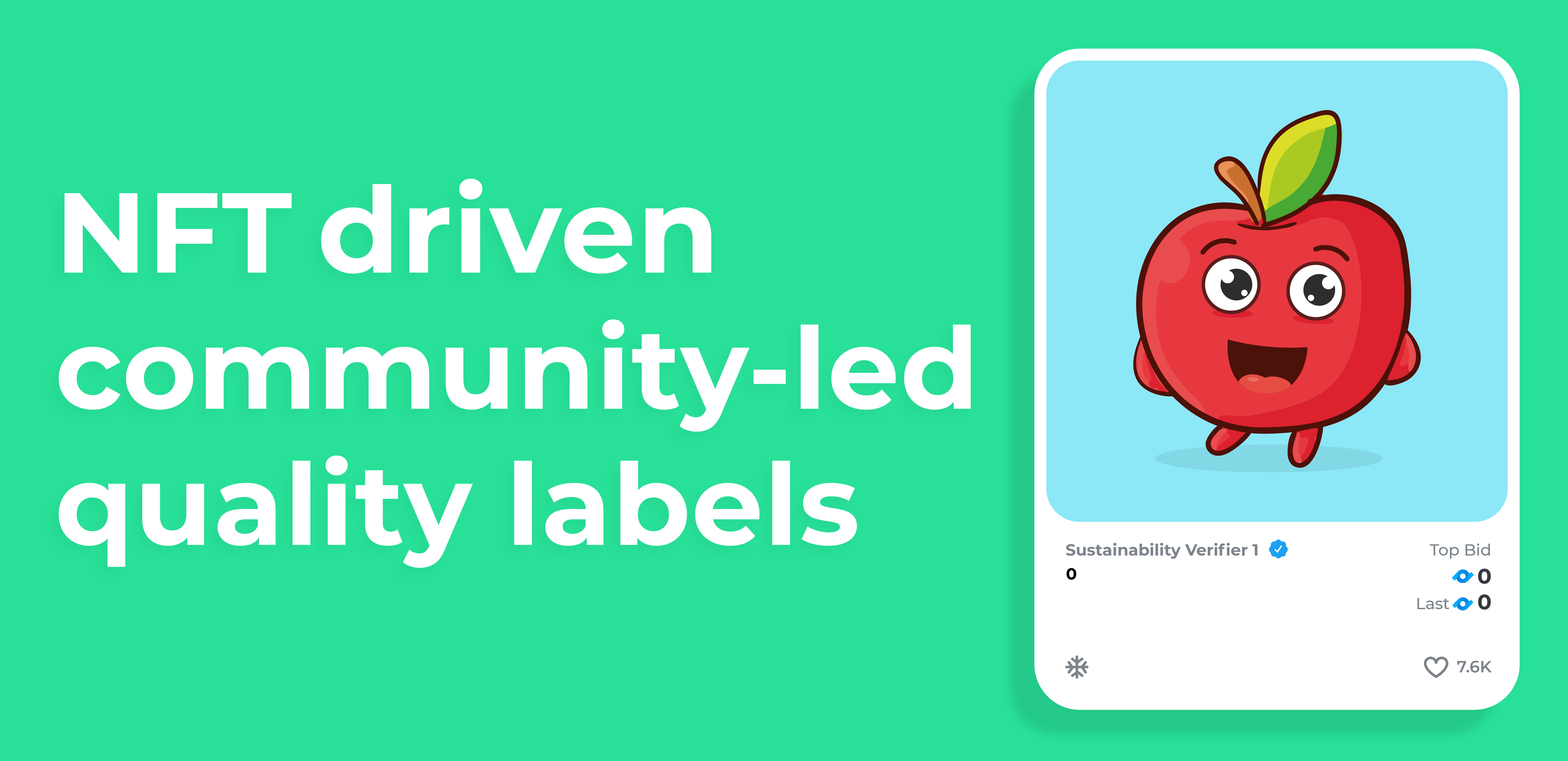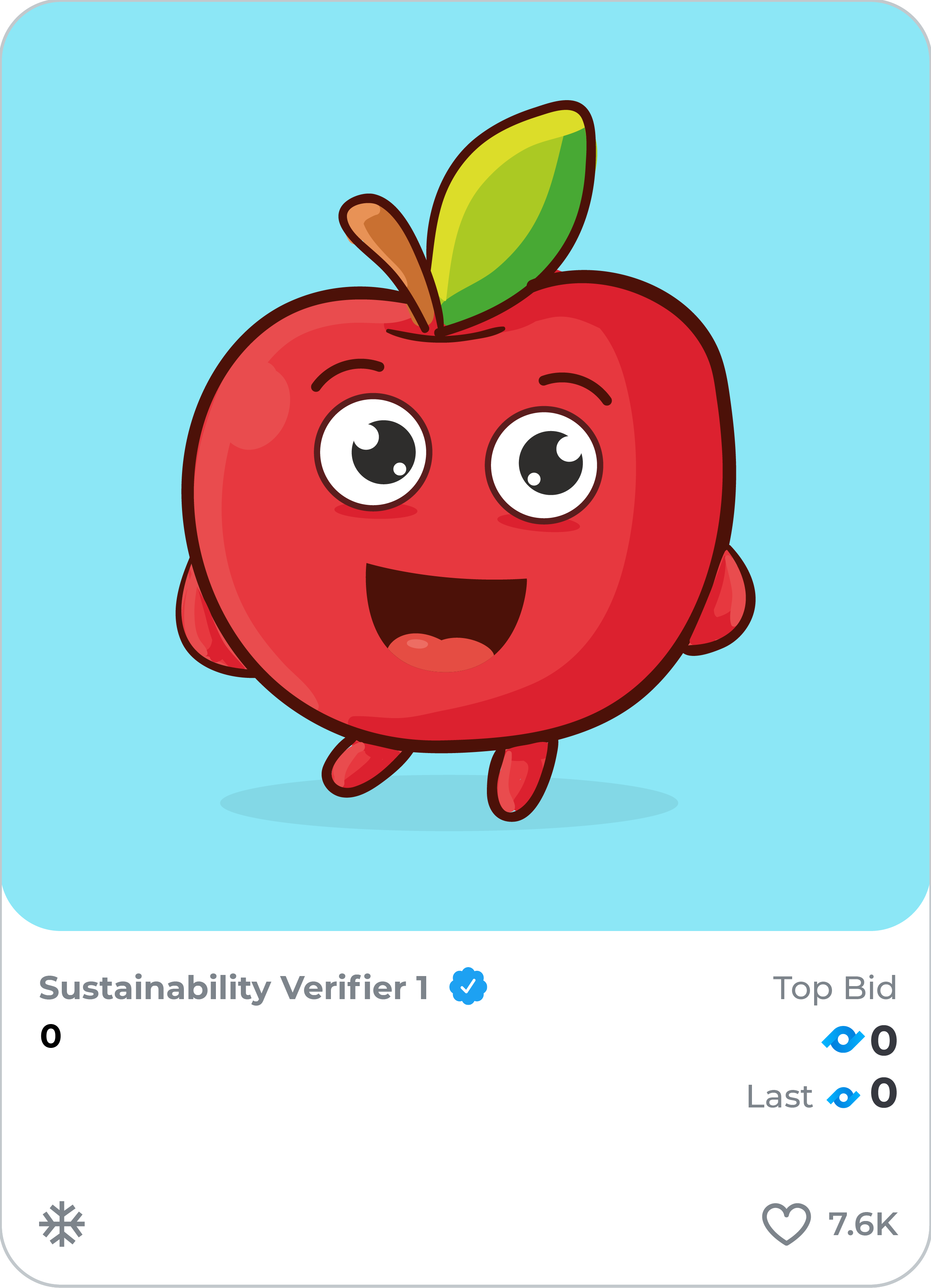
Quality labels/certifications, sustainable practices, and a transparent process have become increasingly important for brands to create trust and drive brand value. Therefore, various certification authorities serve as the central authority tasked with auditing companies and accordingly providing proof they are living up to specific requirements through countless labels. However, one might question why this should be left up only to central authorities?
Especially taking into consideration that the criteria “that matter” are decided by these authorities and might radically differ from an individual’s perspective (on, for example, sustainability). A critic might consider a situation where there is a conflict of interest and therefore these labels might lose their perceived value. However, for companies, it is difficult to simply launch their own credible alternatives without providing an external validation. Could blockchain technology and NFTs provide a decentralized community-led alternative for quality labels?
Before going into details, let’s start with an example: Imagine a company like Nike or Greenyard wishes to promote some specific sustainability criteria and create their own quality label (could be, for example, CO2 emissions). It would be difficult to assign any credibility to this as there would be no external validation of the claims made. Therefore, these companies would need an external organization to audit them and additionally to become an ambassador of this label to promote it. The result is a centralized auditor where consumers might doubt the actual claims made or judge the criteria chosen as being invalid. So far, the status quo.

A decentralized, community-led alternative to quality label auditing for brands could work as follows:
The brand mints a collection of x number of brand ambassador NFTs with images that match the values of what the label stands for (for instance, a bio label). These NFTs give the holder the exclusive right to audit the organization on its claims and become the external ambassador of the label. It is important to note that it is not the NFT that gets assigned to the company but instead the NFT is owned by the community member, giving them specific access rights to the company. It is the company that decides the size of the NFT collection and thus how large and trustworthy this auditing community is.
The result is a community of NFT holders who become stakeholders as they get specific access to validate the brand criteria assigned to the NFTs. Since the blockchain provides fully transparent proof of who owns these NFTs at any given point in time, the reputation of the holder (external ambassador) is implicitly linked. Generally, it is the holders or community members that become the main promotors (cf. Bored Ape Yacht Club). Since NFTs can be transferred or sold, the market pricing mechanism will lead to the most eager person or organization to be the holder of the NFT. Whenever the community does a good job (good auditing and ambassadorship) the value of this quality label becomes more known and thus the value of the linked NFT increases. Other organizations or brands may wish to get the same stamp of approval from this reputed community further increasing the value and could potentially lead to new business models.
Note that the application of the quality label does not need to be limited to sustainability criteria as in the example above but can in general be any community-led NFT for product auditing (for example software application code auditing). More on this in relation to DAOs will be in the next article.
In doing so, a community-led ambassadorship of a brand with specific criteria using NFTs as a community driver is created. This concept allows for brands to launch their own initiatives while at the same time gaining external validation. Consumers or anyone who is passionate can purchase one of the NFTs and become an ambassador and auditor allowing for a decentralized quality label that does not lose its value or credibility.
